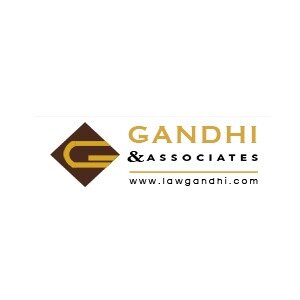Best Consumer Protection Lawyers in Nepal
Share your needs with us, get contacted by law firms.
Free. Takes 2 min.
Or refine your search by selecting a city:
List of the best lawyers in Nepal
About Consumer Protection Law in Nepal
Consumer Protection in Nepal is governed by various legislative measures aimed at safeguarding the rights and interests of consumers. The Consumer Protection Act, 2018, serves as the cornerstone of consumer rights law in the country, ensuring fairness and transparency in goods and services offered in the market. This legislation empowers consumers to seek redressal against dishonest trade practices, faulty products, and inadequate services. The law also emphasizes the importance of qualitative standards and proper labeling of goods, providing consumers the confidence they need when making purchasing decisions.
Why You May Need a Lawyer
There are several situations where you may require the assistance of a lawyer specializing in consumer protection law:
- When your consumer rights have been violated, such as receiving defective goods or substandard services.
- If you experience fraudulent or deceptive trade practices from a business.
- When you need to interpret complex contracts or warranties and assert your rights within these legal documents.
- If you face challenges in receiving compensation or refunds for defective products.
- When you need to gather evidence and build a case for litigation regarding a consumer dispute.
Local Laws Overview
The Consumer Protection Act, 2018, is the primary regulatory framework guiding consumer rights in Nepal. Key aspects include:
- Clear definitions of what constitutes a 'consumer,' 'goods,' and 'services' to avoid ambiguity.
- Establishment of consumer courts for the resolution of consumer disputes.
- Provision for compensation or replacement for consumers suffering from defective goods or poor services.
- Guidelines for product labeling to ensure transparency and inform consumers about product specifications.
- Prohibition of unfair trade practices, including misleading advertisements and false representations.
- Implementation of consumer rights awareness programs at the community level.
Frequently Asked Questions
1. What are the rights of consumers under Nepal's law?
Consumers are entitled to receive complete, truthful information about products and services, protection against hazardous goods, compensation for loss or harm, and access to redressal mechanisms.
2. How can I file a complaint if my consumer rights are violated?
Consumers can file a complaint with the relevant Consumer Protection Council or the Department of Commerce, Supplies and Consumer Protection Management (DoCSCPM). For further legal recourse, approaching a consumer court is advisable.
3. Is there a time limit for filing a consumer complaint?
Yes, the time limit is generally three months from the date the defect is discovered or the service deficiency takes place. However, this may vary based on specific circumstances.
4. What constitutes unfair trade practices under Nepali law?
Unfair trade practices include misleading advertisements, false representation of goods or services, and deceptive pricing.
5. Can I claim a refund for a defective product?
Yes, consumers are entitled to a refund, replacement, or repair of defective products under the Consumer Protection Act, 2018.
6. Are there any specific authorities to handle consumer protection issues?
Yes, the Department of Commerce, Supplies, and Consumer Protection Management (DoCSCPM) is the primary governmental body handling consumer protection issues.
7. Can I handle a consumer dispute without a lawyer?
While it is possible to handle disputes independently, complex cases involving litigation or significant financial stakes typically require legal assistance for a favorable outcome.
8. What should I do if I encounter deceptive advertising?
Document the advertisement, gather evidence, and file a complaint with the respective consumer protection authority to initiate an investigation.
9. How does the law address product labeling and safety standards?
The law mandates clear labeling of products to inform consumers about specifications, usage instructions, potential risks, and safety standards.
10. What is the procedure for approaching a consumer court?
Individuals must submit a written complaint along with supporting evidence to the nearest consumer court or tribunal, following which a hearing will be scheduled.
Additional Resources
For further assistance, the following resources may be helpful:
- Department of Commerce, Supplies, and Consumer Protection Management (DoCSCPM)
- Consumer Rights Protection Forum Nepal
- Legal aid centers offering consumer protection advice
- Local NGOs advocating for consumer rights
Next Steps
If you find yourself in need of legal assistance regarding consumer protection, consider the following steps:
- Gather all relevant documents and evidence related to your consumer dispute.
- Consult a lawyer specializing in consumer protection to explore your legal options.
- File a formal complaint with the appropriate consumer protection authority or consumer court.
- Keep a record of all communications and steps taken to resolve the issue.
Lawzana helps you find the best lawyers and law firms in Nepal through a curated and pre-screened list of qualified legal professionals. Our platform offers rankings and detailed profiles of attorneys and law firms, allowing you to compare based on practice areas, including Consumer Protection, experience, and client feedback.
Each profile includes a description of the firm's areas of practice, client reviews, team members and partners, year of establishment, spoken languages, office locations, contact information, social media presence, and any published articles or resources. Most firms on our platform speak English and are experienced in both local and international legal matters.
Get a quote from top-rated law firms in Nepal — quickly, securely, and without unnecessary hassle.
Disclaimer:
The information provided on this page is for general informational purposes only and does not constitute legal advice. While we strive to ensure the accuracy and relevance of the content, legal information may change over time, and interpretations of the law can vary. You should always consult with a qualified legal professional for advice specific to your situation.
We disclaim all liability for actions taken or not taken based on the content of this page. If you believe any information is incorrect or outdated, please contact us, and we will review and update it where appropriate.
Browse consumer protection law firms by city in Nepal
Refine your search by selecting a city.











